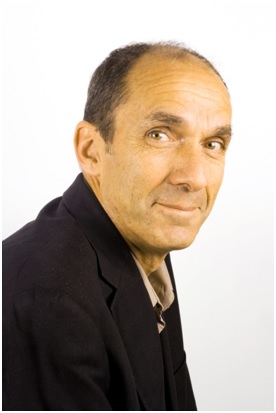This message is included in the April 2016 ISSMGE Bulletin
 |
 |
| Pierre Delage, Chair of the TOC | Sukumar Pathmanandavel, Chair of the CAPG |
Introduction
Some exchanges started last year (in 2015) between the Corporate Associates Presidential Group (CAPG) and the Technical Oversight Committee (TOC) of the ISSMGE to better understand the possible impact of the activities of the Technical Committees (TCs) with respect to geotechnical practice. According to the ISSMGE Guidelines, beside organising conferences, the objectives of the TCs include "disseminating and developing knowledge and practice to the membership of the ISSMGE, establishing guidelines and technical recommendations and interacting with industry and overlapping groups working in areas related to the TC’s specialist area". These objectives are fully in line with the concern of CAPG.
Composition of the Technical Committees (TCs)
TC numbered 10i are devoted to Fundamental aspects but it their activities can actually either be directly interesting and used in practice (Numerical methods, Lab and In-situ testing or Physical modelling) or be able to better understand complex problems (Unsaturated soils and Micro-macro). Their members are mainly from academia (more than 80%) but interaction with practice is clear, in particular in complex practical problems where the expertise of academics is required. TCs numbered 2ij devoted to Applications are directly linked to practice (Earthquake, Deep foundations, Ground improvement, Offshore geotechnics, to name a few) with a larger membership from companies (average 50%, 75% in Offshore). Their activities (Conferences, Workshops, Short courses, State of the art reports or Guidelines when they exist) are of utmost importance for practice. TCs 30i are concerned with Impacts on Society (Floods, Energy geotechnics, Risk, to name a few) with again clear interest for practice.
Knowledge of Knowledge
Whereas TC members (from research and practice) can directly benefit from TC activities, the question as to whether commercial geotechnical companies (affiliated or not to ISSMGE) can also benefit from them arises. To progress in this regard, a joint CAPG-TOC poll was carried out in early 2015 with a questionnaire concerning the production of State of the Art (SOA) and State of Practice (SOP) by TCs. Up to date SOAs and SOPs by TCs would definitely be quite useful to allow the transfer of knowledge towards practice, to improve methods and benefit from the latest developments. This raises the issue of knowledge of knowledge. How can we know what people know? The answer received by many TCs to the poll showed that things were not so simple, with rather few up to date SOAs and SOPs (with some exceptions including Environmental, Ground improvement or Heritage). Note that the SOA provided in ISSMGE Conferences some time ago on selected topics were in this regard quite useful (such SOA are still produced in some TC Conferences). Note also that the International Commission on Large Dams (ICOLD) devotes its Conferences to a limited number of (hot) Questions about which specialists are invited to contribute (ICOLD also provides Guidelines/Bulletins on many aspects of Dam engineering). This is perhaps an option to reconsider with respect to the needs of geotechnical practice.
Debate in social media (Géotechnique letters)
In this context, an interesting debate about the interactions between practice and research/innovation recently took place through a post by the Chair of CAPG on the LinkedIn site of the journal Géotechnique Letters, including the following points:
- The question of the direction followed by the progresses of geotechnical practice, no longer given by a few “giants”, with more widespread knowledge and expertise and an enormous growth of Geotechnical engineering in the last decades;
- How old are the methods used in practice, and how far do the risks taken and the fear of litigation limit the adoption of innovative methods and the resulting cost reduction? Beside risk considerations, how strong is conservatism and in which fields is it more pregnant?
- What happens to the insights gained in practice from the many projects conducted in companies all over the world?
- How can clients ask at the same time for innovative solutions and proven performances?
- How to define a fair share of the risks linked to adopting innovative solutions between owners, contractors, designers and researchers?
- Is the link between research and practice weaker or stronger than before?
- Are governments ready to support intensive collaboration between research and practice to narrow the gap on key problems? Do they know how to proceed on a national or international basis?
- What is the proportion of ISSMGE members with respect to the total number of Geotechnical engineers in the world?
Break out session at the ISSMGE Edinburgh conference
A highly successful breakout session was organised by TOC & CAPG where the Chair of the TOC presented on the state of the art and state of practice concepts, and members of the core team of the CAPG presented to the audience results of the survey of the TCs on state of the art and state of practice, as well as practical concerns encountered by practitioners in the day to day operation of commercial geotechnical practice. The role of academic research in practical applications to both small scale and major geotechnical projects was also discussed. UK’s Ground Engineering magazine (9 Oct 2015) reported on these discussions. The debate in social media (above) picked up on key themes from this discussion.
What does 2016 hold for TOC – CAPG cooperation?
- Creation and distribution of a global survey on the state of the art versus state of practice in the varied fields of geotechnical and geo-environmental engineering.
- Increase engagement and number of Corporate Associates of the ISSMGE.
We invite all members of the ISSMGE to participate in these two important activities for the ISSMGE. Please contact the undersigned for registration of interest and further information.
Pierre Delage, Chair of the Technical Oversight Committee ([email protected])
Sukumar Pathmanandavel, Chair of the Corporate Associates Presidential Group ([email protected])
